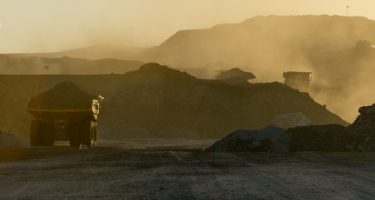Citizens' Recourse to Compliance with Environmental Laws: The Emergence of a Societal Control Authority
Christine Duchaine
Sodavex Law Firm
2007
1. INTRODUCTION
When the Environment Quality Act1 (hereinafter the "EQA") came into force in December 1972, Quebec businesses and citizens were not very concerned about the impacts of their activities on the environment, since the sustainability of the environment and its ability to absorb these impacts were simply assumed by all. Moreover, the possible interventions under the first version of the EQA were very limited. With the passage of time, we have seen a marked evolution, both in terms of society's interest in preserving their environment, and in the willingness of citizens to play an active role in this regard. However, it took several years before it was amended to provide for the possibility for citizens to get involved, whether in the analysis of projects requiring authorization or in the institution of procedures to ensure compliance with the E.Qa.
Thus, Quebec society, which less than 40 years ago was indifferent to the concept of environmental quality, has since made it a priority issue, so that it is now up to the survival of political parties and businesses to share this concern, the latter no longer having to show a clean slate, but rather a "green paw" to win the favour of their electorate or their clientele.
Citizens are concerned about the environmental impacts of various facets of today's society and they no longer hesitate to take advantage of all the platforms available to them to assert their opinions and try to influence companies and government authorities on their ways of doing things.
The implementation of the Kyoto Protocol, the construction of the Hertel-des-Cantons power line and the Suroît generating station, the privatization of Mont Orford, the extension of Highway 25 and the diversion of the Rupert River are all examples that have given rise to environmental debates in Quebec. These debates are echoed in the National Assembly, in the streets during protest marches, in the media and increasingly in the courts.
The involvement of citizens has become essential, so that politicians and companies must now take this reality into account in the management of their activities.
Driven by their dissatisfaction with the slowness of the authorities and the laxity of some companies, citizens now feel a responsibility to ensure the protection of the environment and no longer hesitate to appropriate legal remedies that were previously the prerogative of law enforcement authorities.
Thus, despite the fact that the Court of Appeal in the recent decision in St. Lawrence Cement v. Barrette stated that "[t]he protection of the environment is a matter of social concern that is of primary concern to the state,"2 recent years have shown that citizens have successfully used various remedies to ensure the protection of the environment. This has allowed them to compel corporations with and without profits, individuals, trade unions, cities and towns and public bodies, to comply with the legislation and even to force government authorities to take the necessary measures to enforce the legislation.
The purpose of this article is to identify the various forums and remedies available to Quebec citizens and to briefly describe the conditions for exercising these powers of intervention. We will also attempt to analyze the impacts of recent interventions on business and government authority, as well as the response they offer to emerging legal activism from citizens.


























